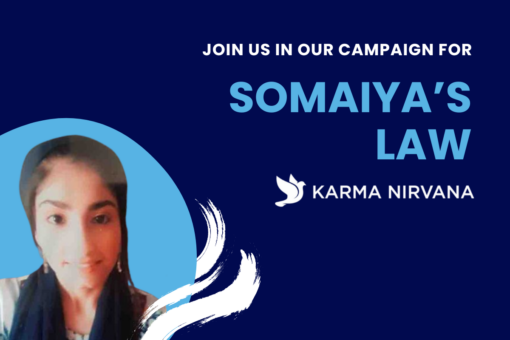
Somaiya’s Law is a campaign to strengthen the UK’s legal and safeguarding response to Honour-Based Abuse (HBA) and Forced Marriage (FM). It calls for ‘Honour’ be recognised as an aggravating feature in criminal sentencing, for mandatory training for frontline statutory professionals, and improved data collection to ensure victims are recognised, protected, and given justice.
Call to Action
Karma Nirvana is calling for urgent action to close gaps in legal and safeguarding responses to HBA and FM by:
- Recognising ‘Honour’ as an Aggravating Factor in criminal sentencing to ensure harsher penalties and earlier recognition of HBA in police investigations.
- Mandating Honour-Based Abuse & Forced Marriage Training for frontline police and social workers to enhance understanding and protection.
- Improving Data Collection on HBA & FM by encouraging the inclusion of ‘honour’ as a factor in the Department for Education’s Child in Need and Child Protection Census. This will support Local Authorities in capturing data on HBA, leading to better identification and safeguarding of at-risk children.
Who is Somaiya Begum?
Somaiya Begum was a bright and determined 20-year-old student from Bradford, studying at Leeds Beckett University while also working as a carer to support herself. An intelligent young woman full of spirit and courage, Somaiya was described as “a blessing to have in my household” and “the light of my household.” She quickly settled into university life, becoming popular with both her peers and academic staff.
In her first year, she achieved one of the highest marks in her cohort, excelling in genetics and pharmacology, where she had a clear gift. She loved Korean dramas and had her whole life ahead of her – a life full of promise, ambition, and potential.
Despite being under the protection of an FMPO, her uncle was able to access her home, ultimately leading to her murder. Her death was preventable, yet the gaps in legal protections and safeguarding left her vulnerable.
During the trial for her murder, significant evidence of cultural dynamics and tensions surrounding Somaiya’s rejection of a forced marriage and the family she grew up in was presented, however the court did not fully recognise the honour motive behind her murder.
This case exposes severe shortcomings in both the justice system’s lack of understanding of HBA and FM, as well as safeguarding professional’s understanding of these issues.
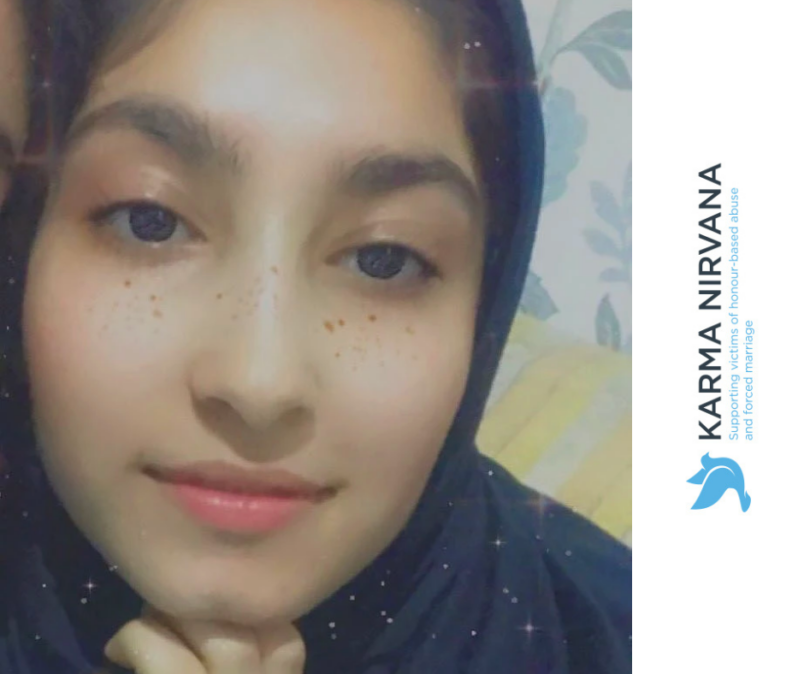
Why Somaiya’s Law?
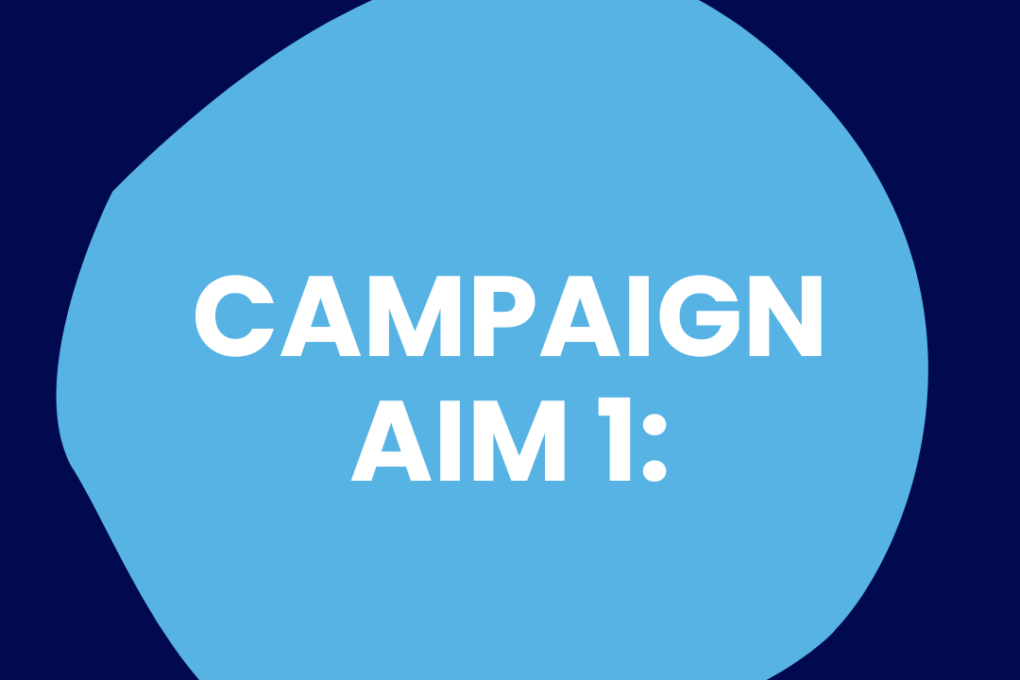
Closing the Justice Gap for Honour-Based Killings
Somaiya Begum was murdered by her uncle in 2022. Despite clear signs of an honour-based motive, the judge stated:
- “It is not possible to identify a motive for this dreadful attack.”
- “I reject the prosecution’s suggestion that I should treat this as any form of so-called honour killing.”
Why did this happen?
Because the evidence of honour as a motive was not fully investigated or presented in court. Meanwhile, the defence actively used honour to shift blame, arguing that Somaiya’s father had “lost his so-called honour” and had a stronger motive for the crime.
If “honour” had been recognised as an aggravating factor in sentencing, there would have been a clear obligation to investigate, prove, and acknowledge it in court. Instead, Somaiya—like so many others—was failed.
We need Somaiya’s Law to make honour an aggravating factor in sentencing and ensure justice for victims of Honour-Based Abuse.
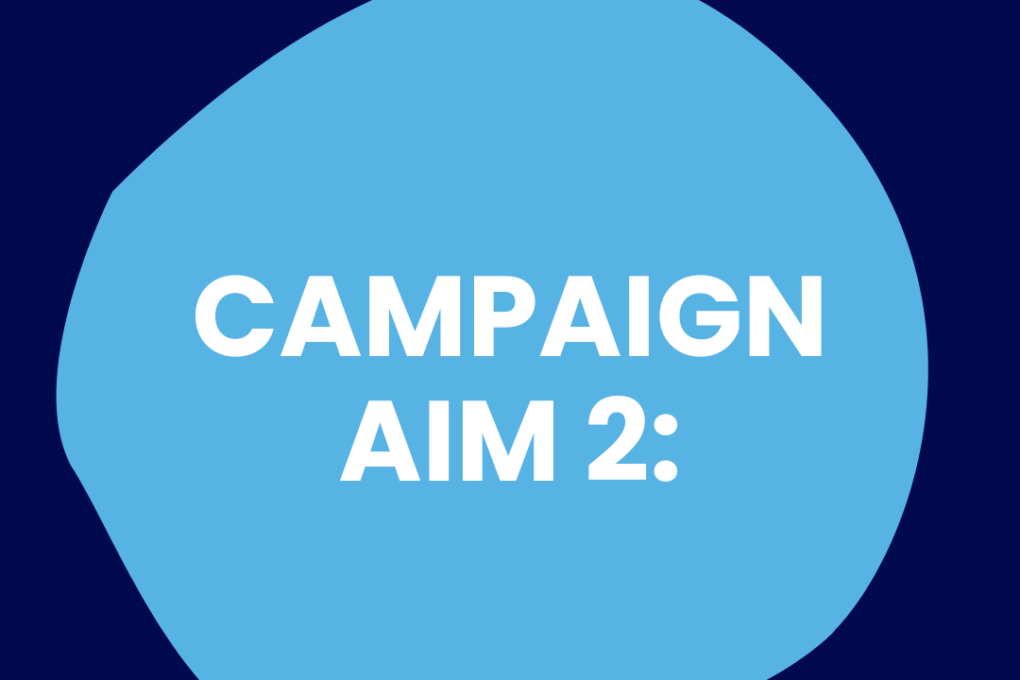
Strengthening Understanding of Honour Based Abuse and Forced Marriage
FMPOs Alone Are Not Enough
Despite being under the protection of a Forced Marriage Protection Order (FMPO), Somaiya was still brutally murdered.
Why did this happen?
The professionals handling her case lacked the depth of understanding needed to act effectively. They relied on the FMPO as a safeguard, without fully recognising the ongoing risks. Had there been structured knowledge and follow-through, authorities could have identified the dangers and intervened sooner.
Somaiya’s case highlights a critical issue: inconsistent understanding of FMPOs can leave victims vulnerable. An FMPO was in place, but without proactive measures, it was not enough to protect her.
FMPOs must be paired with stronger professional training and action. Those handling cases of forced marriage need a clear, consistent understanding of the risks, the protections available, and the steps required to truly safeguard victims.
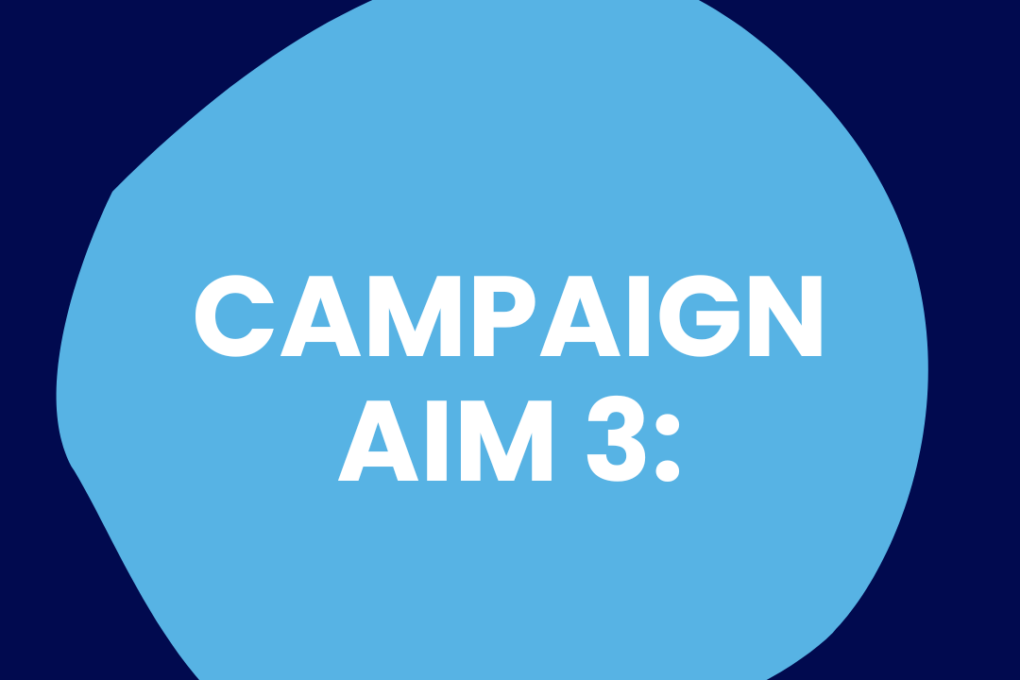
Better Data Collection
HBA & Forced Marriage: Missing from Children’s Social Care Data
Every year, the Department for Education collects data from local authorities on safeguarding cases, shaping the Children’s Social Care statistics. This includes factors like Domestic Abuse and Mental Health – but Honour-Based Abuse and Forced Marriage are not included.
Why is this happening?
In 2023, the Women and Equalities Committee recommended including HBA and FM in the Children in Need Census. However, these recommendations were rejected by the previous government, leaving critical gaps in data collection. As a result, even two years after Somaiya’s death, her local authority still cannot report on Forced Marriage cases.
While Bradford Council is making progress through initiatives like the DAMAPO project, a national approach is needed. If HBA and FM were formally included in the Children’s Social Care statistics, every local authority would be required to track and report these cases, helping to:
✅ Identify trends and prevalence
✅ Enable earlier intervention and risk assessments
✅ Strengthen safeguarding measures
We need to #Push4Change to ensure every authority is equipped to protect at-risk children.
Support Somaiya’s Law
We are calling on policymakers, legal professionals, and the public to support these crucial reforms to prevent further tragedies like Somaiya Begum’s:
- Advocate for Honour-Based Motives to Be Recognised in Sentencing
- Call for Mandatory HBA & FM Training for Police and Social Workers
- Push for Social Care Data Collection on HBA and FM
These changes are essential to ensure justice, protection, and support for victims of Honour-Based Abuse and Forced Marriage. This campaign has been launched on the two-year anniversary of the verdict in the murder trial of Somaiya Begum.
